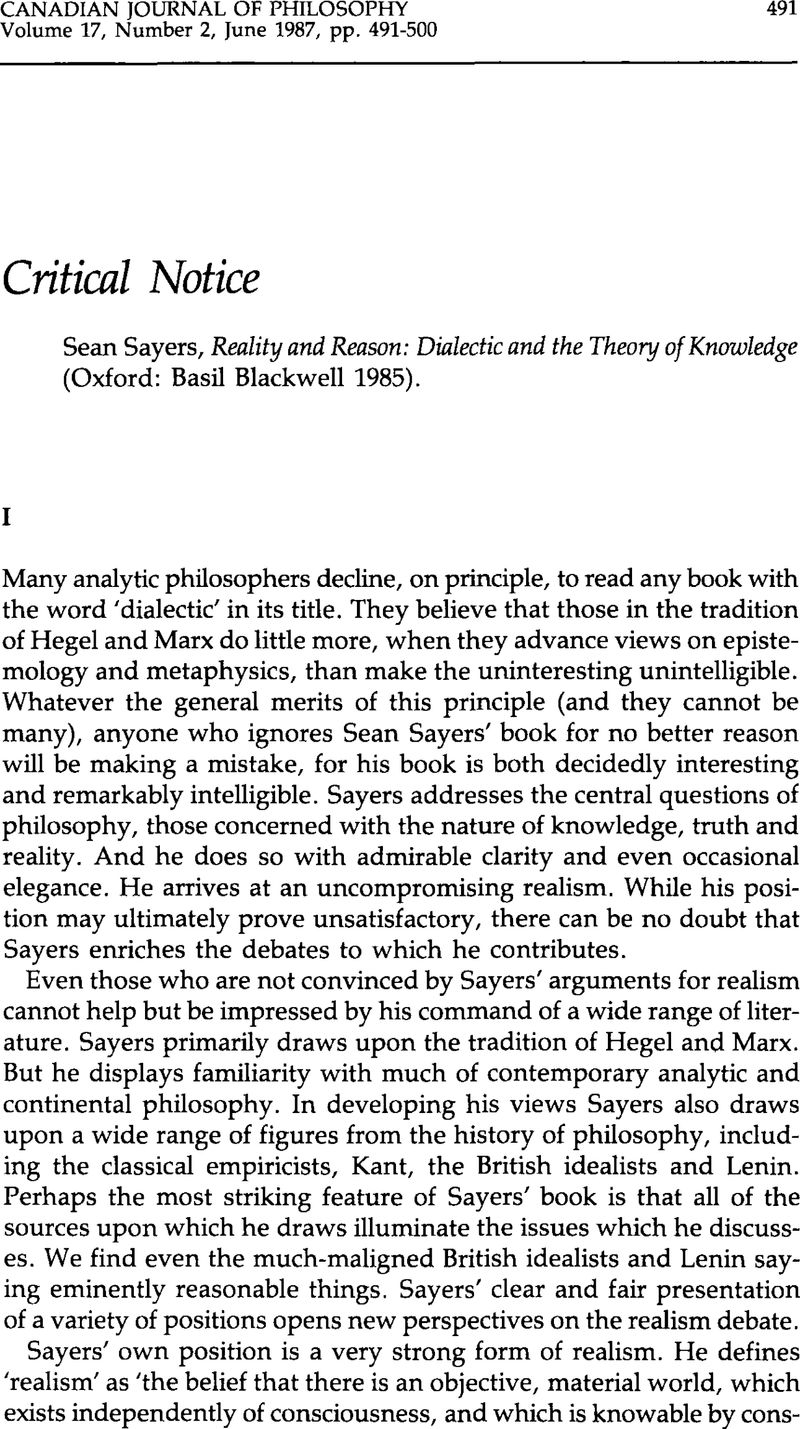No CrossRef data available.
Article contents
Sean Sayers, Reality and Reason: Dialectic and the Theory of Knowledge (Oxford: Basil Blackwell 1985)
Review products
Published online by Cambridge University Press: 01 January 2020
Abstract

- Type
- Critical Notice
- Information
- Copyright
- Copyright © The Authors 1987
References
1 All bracketed numbers refer to pages of Sayers’ book.
2 It is worth noting that radical Berkelians, and indeed any idealists, are not subject to certain standard objections to non-realist accounts of science. They are not subject to the so-called miracle argument. They do not make the observed regularity of nature into a miracle. Radical Berkelians do not deny that some unobserved entity (God) must be posited to account for the regularity of observed phenomena. Neither are idealists subject to the sort of objection which Richard Boyd makes. (See Boyd, Richard ‘Realism, Underdetermination, and a Causal Theory of Evidence,’ Nous 7 [1973], 1-12.CrossRefGoogle Scholar) Boyd suggests that if we have two equally empirically adequate theories, we should adopt the one which posits entities more consonant with our other theories. But radical Berkelians do just this. They already countenance the existence of God, so an ontology which appeals to God is preferable to one which appeals to some other sort of entity.
3 Quine, Willard Ways of Paradox (Cambridge, MA: Harvard University Press 1976), 211Google Scholar
4 Smart, J.J.C. ‘Metaphysical Realism,’ Analysis 42 (1982), 1-3CrossRefGoogle Scholar
5 Laudan, Larry ‘A Confutation of Convergent Realism,’ Philosophy of Science 48 (1981), 19-49CrossRefGoogle Scholar
6 Laudan, 24
7 I thank Rodger Beehler for having read and made valuable comments on an earlier version of this essay.




